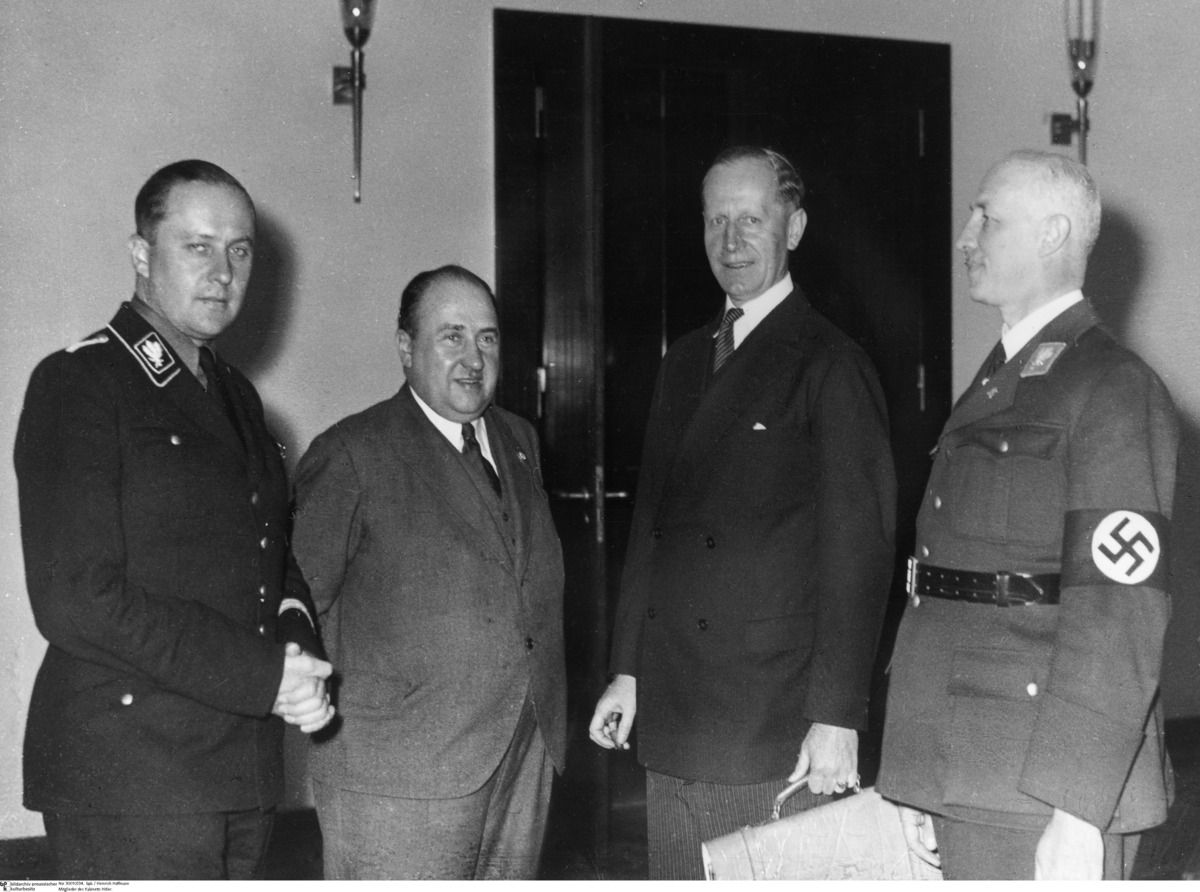Abstract
In 1933, the “blood and soil” ideologist Richard Walther Darré took
control of Nazi agricultural policy. As Reich Farm Leader and Reich
Minister of Food and Agriculture, Darré coordinated and directed all of
German agriculture through the so-called Reich Nutrition Estate, which
regulated the production, wholesale and retail trade, and consumption of
agricultural products. Central protection and promotional measures such
as production norms, fixed prices, import duties, and support purchases
were supposed to insulate German agriculture from the world market and
make it as productive as possible. In fact, by 1939 Germany had achieved
the goal of self-sufficiency in the production of bread, potatoes,
sugar, meat, and other foodstuffs, but only through strict rationing. At
least 15 percent of the food supply was still being imported. Price
increases and supply shortages were already common in Germany before
1939. Additionally, the demands of war preparation also prevented Darré
from realizing his goal of raising farmers to a central position in the
new German national community and achieving a general return to
pre-industrial farming. Great areas of farmland were transformed into
roads, airports, and military bases. The building of the “Westwall”
alone swallowed up 5,600 farms, and others were confiscated and forcibly
combined in order to increase production. The flight from the land was
further accelerated by the development of the armaments industry.
Between 1933 and 1939, the number of farm workers fell from 1.8 to 1.4
million. By the beginning of the war, Darré’s vision of a German
“agricultural nobility” on its own soil had completely disappeared in
the Reich. His influence steadily diminished, and in 1942 he was
relieved of his duties. In 1949, he was sentenced to seven years’
imprisonment in the so-called Wilhelmstraße Trial; among other charges,
he was accused of expropriating Jewish and Polish farmers and refusing
food to German Jews. He was pardoned the following year and died in
Munich in 1953. The photo shows (from left to right) Richard Walther
Darré, Walther Funk (Secretary of State in the Reich Ministry for Public
Enlightenment and Propaganda), Kurt Schmitt (Reich Minister of
Economics) and Gottfried Feder (Secretary of State in the Reich Ministry
of Economics).
